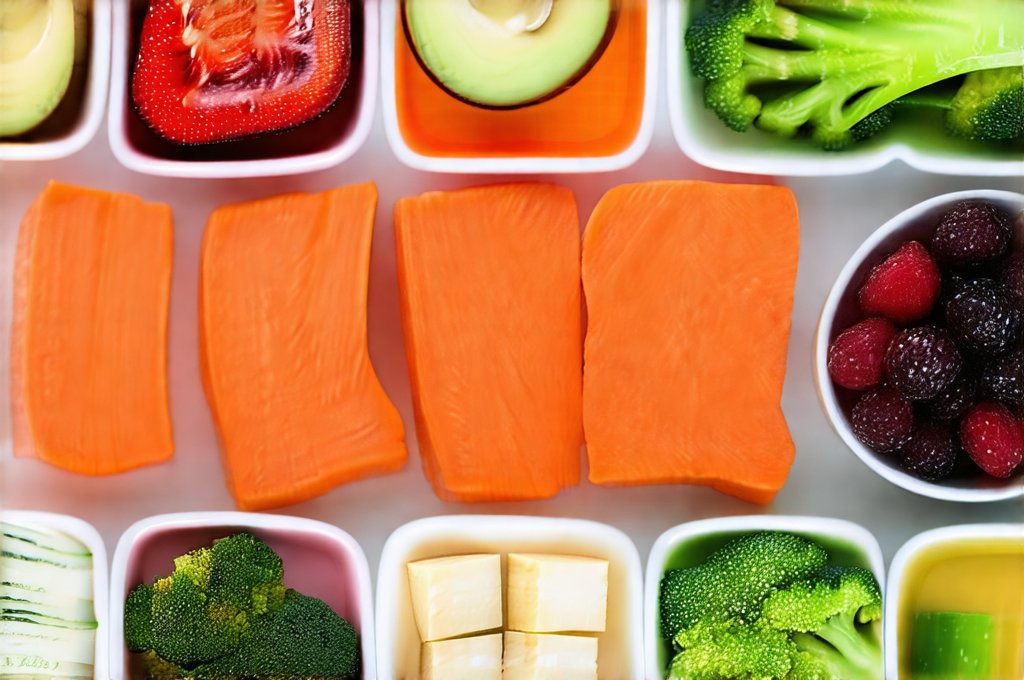Feeling physically comfortable after eating – what many describe as “not feeling bloated” or simply “feeling flat” – is something we often take for granted until it’s disrupted. The sensation of fullness isn’t inherently bad; it signals our bodies are receiving necessary nourishment. However, when that fullness transforms into discomfort, gas, bloating, or even pain, mealtimes can become anxiety-inducing rather than enjoyable. This discomfort isn’t always about what we eat, but also how we eat and the overall state of our digestive system. Understanding the connection between food choices and post-meal comfort is a powerful step towards improving wellbeing and enjoying food without fear.
Many factors contribute to that uncomfortable feeling. Rapid eating, insufficient hydration, stress levels during meals, and underlying sensitivities can all play significant roles. However, focusing on incorporating foods known for their gentle digestibility and supportive properties can make a world of difference. This isn’t about restrictive dieting; it’s about making informed choices that prioritize digestive health and create a more harmonious relationship with food. It’s also crucial to remember that everyone is different – what works wonderfully for one person might not have the same effect on another, requiring some experimentation and self-awareness.
The Power of Easily Digestible Foods
Foods that are easy to digest generally contain fewer complex carbohydrates, less fat, and are often naturally lower in FODMAPs (Fermentable Oligosaccharides, Disaccharides, Monosaccharides And Polyols). These substances can be difficult for some people to break down, leading to fermentation in the gut and subsequent bloating. Prioritizing foods that require minimal digestive effort allows your system to work more efficiently and reduces the likelihood of discomfort. A key principle is choosing whole, unprocessed options whenever possible. This means opting for fresh produce over packaged snacks, lean proteins instead of fried foods, and preparing meals at home to control ingredients.
Simple carbohydrates found in cooked vegetables like carrots, squash, and green beans are generally well-tolerated. Similarly, white rice (in moderation) is often easier on the digestive system than brown rice due to its lower fiber content. Lean protein sources such as chicken breast or fish can be incorporated without overwhelming the gut, provided they aren’t fried or heavily seasoned. The goal isn’t to eliminate entire food groups but rather to choose versions that are gentler and support optimal digestion.
Furthermore, mindful preparation methods can significantly impact digestibility. Steaming, boiling, or baking are preferable to frying, as they require less fat and reduce the burden on your digestive system. Thoroughly chewing your food is also paramount – it initiates the digestive process in the mouth and breaks down food into smaller particles, making it easier for the stomach to process. Hydration during meals helps soften stool and facilitates smooth digestion, reducing bloating.
Soothing Foods for Digestive Support
Beyond simply avoiding problematic foods, actively incorporating certain foods can support a healthy digestive system and promote comfort. Ginger, for instance, has been used for centuries to alleviate nausea and reduce inflammation in the gut. A small amount of grated ginger in tea or added to meals can make a noticeable difference. Peppermint, similarly, is known to relax intestinal muscles, reducing bloating and gas. However, it’s important to note that peppermint may exacerbate symptoms in individuals with acid reflux – it’s essential to listen to your body.
Probiotic-rich foods like yogurt (especially Greek yogurt) and kefir introduce beneficial bacteria into the gut, helping to balance the microbiome and improve digestion. Fermented vegetables such as sauerkraut and kimchi are also excellent sources of probiotics, but may require a gradual introduction to avoid initial discomfort. Bananas, particularly ripe ones, offer soluble fiber which aids in regularity and can help prevent constipation – a common contributor to bloating. Remember that consistency is key; incorporating these foods regularly into your diet will yield the most significant benefits.
Hydration’s Role in Digestive Comfort
Proper hydration isn’t just about drinking enough water throughout the day; it’s also integral to how we digest food. Water helps break down food, soften stool, and move waste through the digestive tract more efficiently. Dehydration can lead to constipation, which is a major source of bloating and discomfort. Aiming for at least eight glasses of water daily is a good starting point, but individual needs vary based on activity level, climate, and overall health.
- Sip water throughout meals rather than gulping large amounts afterwards. This aids digestion as it happens.
- Herbal teas (like chamomile or ginger) can contribute to hydration while offering additional digestive benefits.
- Avoid sugary drinks and excessive caffeine, as these can dehydrate the body and potentially irritate the gut.
Mindful Eating Practices
The way we eat is just as important as what we eat. Rushing through meals without proper chewing overwhelms the digestive system and increases the likelihood of bloating. Practicing mindful eating involves slowing down, savoring each bite, and paying attention to your body’s signals of fullness. This can be achieved by:
- Eliminating distractions during mealtimes (turn off the TV, put away your phone).
- Chewing thoroughly – aim for 20-30 chews per bite.
- Taking breaks between bites to assess your hunger and fullness levels.
- Eating in a calm and relaxed environment.
Identifying Personal Triggers
While general guidelines are helpful, the most effective approach to achieving digestive comfort is identifying your personal triggers. Keeping a food diary can be incredibly insightful. Record what you eat, when you eat it, and how you feel afterward. This will help pinpoint specific foods or combinations that consistently cause discomfort. It’s also important to consider other factors like stress levels, sleep quality, and physical activity, as these can all influence digestion.
- Be patient with the process – it may take time to identify your triggers.
- Don’t immediately eliminate entire food groups; try reducing portion sizes or experimenting with different preparation methods first.
- If you suspect a more serious underlying issue (like Irritable Bowel Syndrome), consult with a healthcare professional for proper diagnosis and treatment. This information is not intended as medical advice.




